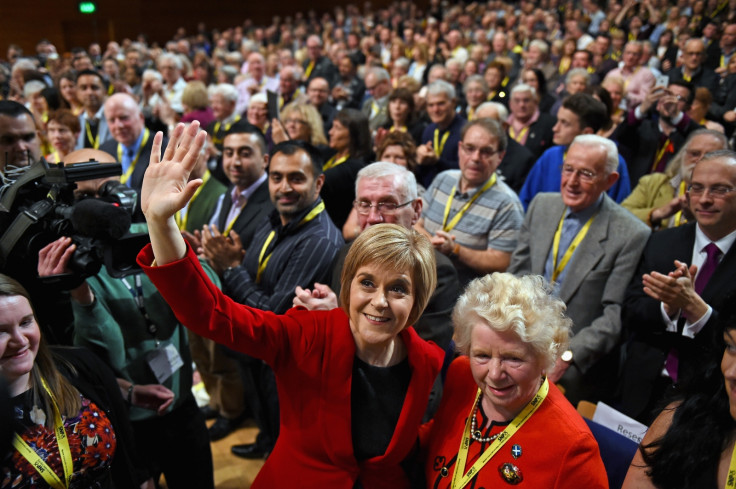Will the Smith Commission's Recommendations Stop the SNP Surge in Scotland?

The Scottish National Party (SNP) is not happy. It welcomed the Smith Commission's recommendations of more income tax and welfare powers for Holyrood.
The agreement will result in the biggest transfer of power to the Scottish Parliament since its establishment.
But for Nicola Sturgeon's party, Lord Smith of Kelvin did not go far enough. The SNP wanted a "powerhouse" parliament and, according to them, the report did not deliver.
"The proposals clearly do not reflect the full wishes of the people of Scotland, and also fall far short of the rhetoric from the No campaign during the referendum," said John Swinney, the deputy first minister of Scotland.
"Regrettably, the Westminster parties were not prepared to deliver the powerhouse parliament the people of Scotland were promised.
"Under these proposals, less than 30% of our taxes will be set in Scotland and less than 20% of welfare spending will be devolved to Scotland.
"That isn't Home Rule – it's continued Westminster rule."
The big question after the report, which was commissioned by David Cameron after the Scottish independence referendum, is "will the recommendations stop the surge of SNP ahead of the 2015 General"?
Alex Salmond's resignation from the SNP invigorated, rather than slowed, the progress of SNP post-independence referendum.
The party's membership surged to more than 90,000 and a poll from Ipsos Mori for STV News found that Labour would only win 23% of the Scottish vote, down from the 42% it secured in 2010.
In comparison, the research revealed the SNP would receive 52% if the general election was held tomorrow, up from the 19.9% the party won in 2010.
The poll means the SNP would have a projected 54 seats at Westminster and severely reduce Labour's 41 Scottish MPs – undermining Ed Miliband's chances of becoming the next prime minister.
In other words, if the Smith Commission recommendations do not slow the SNP, what will?
© Copyright IBTimes 2025. All rights reserved.






















